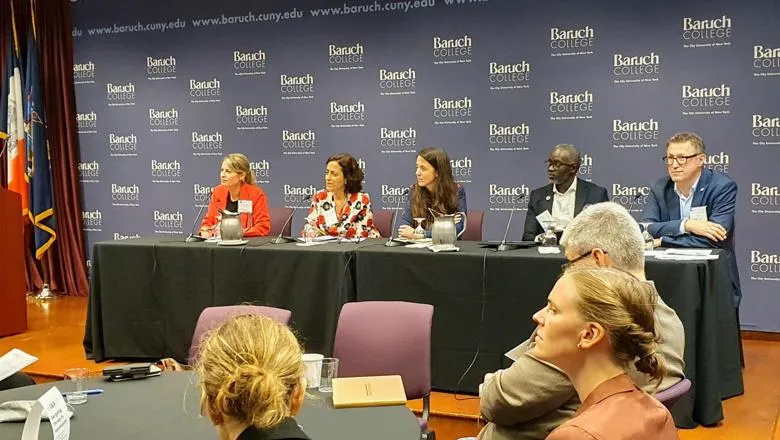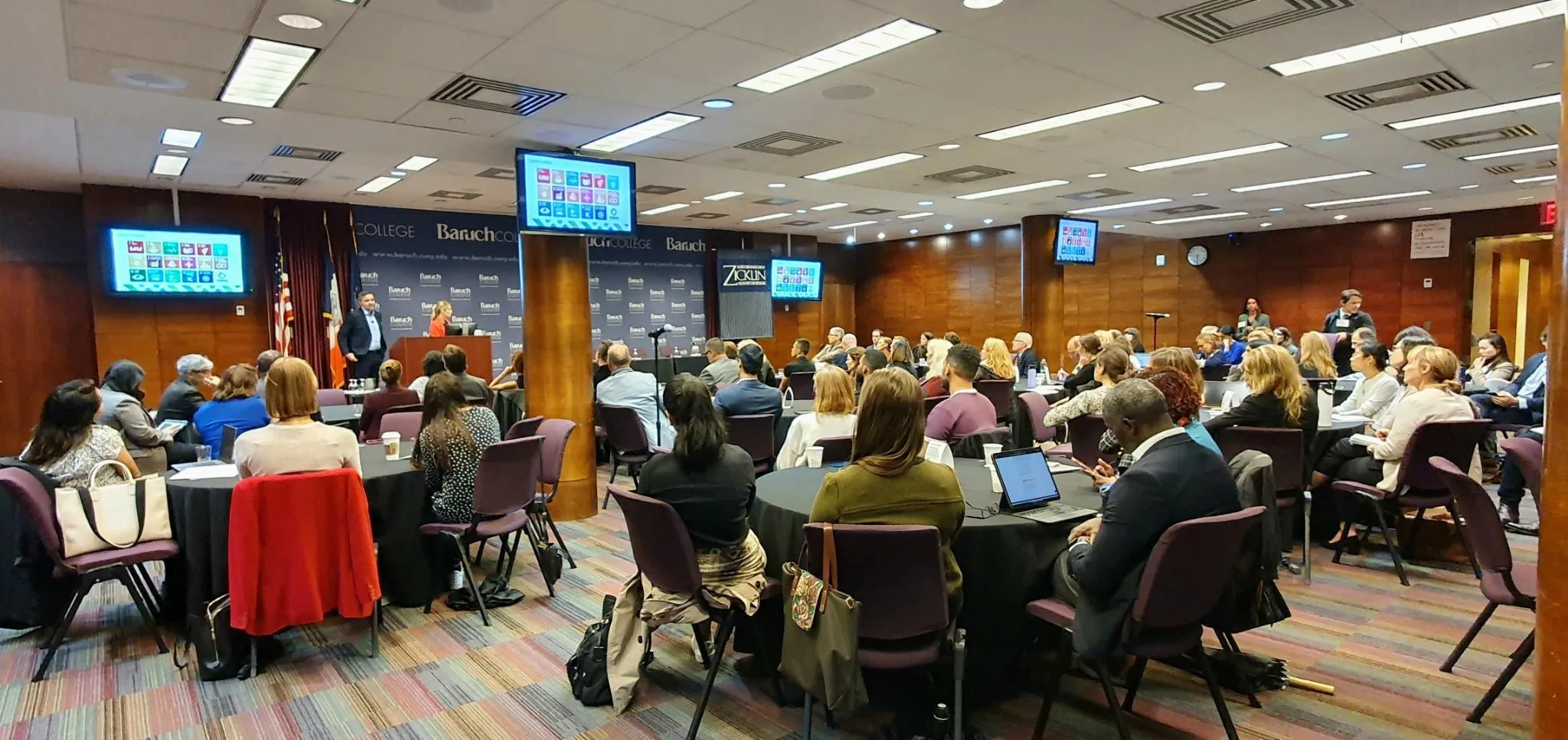In summary, the event at the UN General Assembly emphasized the pressing need for trust, collaboration, clarity, and transparency in policymaking and sustainability reporting. As we navigate the path towards a more sustainable future, insights from the C&S database and annual reports serve as a compass to guide our efforts in achieving meaningful change. Let's continue the dialogue and actions to make a positive impact on our world.
Dr Robyn Klingler-Vidra, Reader in Entrepreneurship and Sustainability at King's Business School
02 October 2023
Why should businesses report data on the UN's Sustainable Development Goals?
Launch of new report during UN General Assembly meeting

Dr Robyn Klingler-Vidra presented the headline findings of the Carrots & Sticks 2023 report at an official sideline event of the UN General Assembly's meeting in September. The 'Carrots and Sticks' project is a freely available database of mandatory and voluntary policies that shape the Environmental, Social, and Governance (ESG) impact of businesses worldwide. Dr Klingler-Vidra joined the initiative earlier this year as an academic co-lead, along with Dr Adam Chalmers, expanding the coverage to more than 130 countries and 40 languages and revising the methodology and policy analysis offering.
Following the presentation, a panel discussion featuring: Adriana Zacarias Farah, Head and Global Coordinator Go4SDGs, UNEP; Cecilia Nicolini, State Secretary for Climate Change, Sustainable Development and Innovation, Argentina Ministry of Environment and Sustainable Development; Stephen Kiptinness, Chief Corporate Affairs Officer, Safaricom and Peter Paul van de Wijs, Chief Policy Officer, Global Reporting Initiative, explored key issues in ESG and sustainability policy and emphasised the urgent need for greater trust and transparency between governments, businesses and the public.
Dr Klingler-Vidra summarises the key take-aways from the event:
- Building Trust Through Transparency: The event underscored the importance of fostering trust between policymakers and businesses. A critical question arose: Why should industries report data, and what will the government do with this information? The journey from voluntary to mandatory reporting was highlighted as a crucial policy arc. Striking the right balance between encouraging voluntary disclosure and eventually transitioning to mandatory reporting is key. We must avoid getting stuck in the voluntary stage and move towards greater transparency and accountability.
- Breaking Down Silos in Public Policy: One challenge discussed was the compartmentalization of public policy. Often, environmental concerns operate independently of industry and economic policies. Argentina's approach of bringing together the Secretariat of Environment, Sustainable Development, and Innovation exemplifies efforts to bridge these gaps. Collaboration and interdisciplinary policy-making are essential to address complex sustainability issues effectively.
- A need to better define what is "Good Policy": Defining what constitutes "good policy" is not always straightforward. Is it about policy integration into firm strategies, readability, innovation, or its impact on global sustainability goals like the SDGs? The discussion highlighted the need to specify the attributes that distinguish excellent policy. Pushing boundaries and innovating in policy design, coupled with clear and measurable goals, emerged as crucial factors.
- Championing Transparency in Sustainability Reporting: A recurring concern centered on the difficulty of validating sustainability claims and actions. The event emphasized the necessity for more transparency in reporting, including both successes and failures. Strikingly, it was suggested that we need more "scandals" in sustainability reporting. These scandals would serve as indicators that we are effectively scrutinizing, verifying, and challenging reported ESG and sustainability data. Without such mechanisms, sustainability reports can be perceived as marketing materials lacking credibility and accountability.


